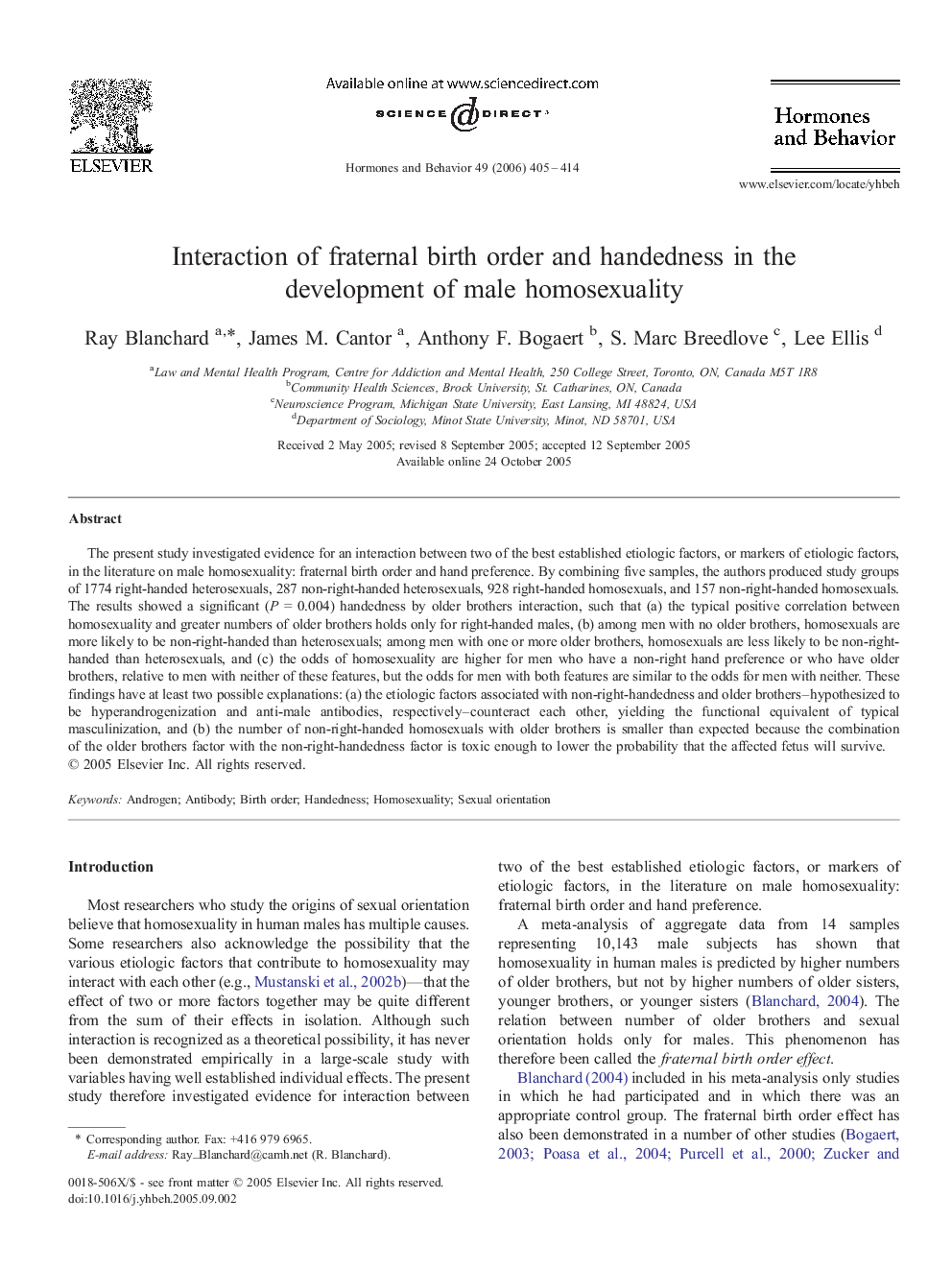| کد مقاله | کد نشریه | سال انتشار | مقاله انگلیسی | نسخه تمام متن |
|---|---|---|---|---|
| 323971 | 540831 | 2006 | 10 صفحه PDF | دانلود رایگان |

The present study investigated evidence for an interaction between two of the best established etiologic factors, or markers of etiologic factors, in the literature on male homosexuality: fraternal birth order and hand preference. By combining five samples, the authors produced study groups of 1774 right-handed heterosexuals, 287 non-right-handed heterosexuals, 928 right-handed homosexuals, and 157 non-right-handed homosexuals. The results showed a significant (P = 0.004) handedness by older brothers interaction, such that (a) the typical positive correlation between homosexuality and greater numbers of older brothers holds only for right-handed males, (b) among men with no older brothers, homosexuals are more likely to be non-right-handed than heterosexuals; among men with one or more older brothers, homosexuals are less likely to be non-right-handed than heterosexuals, and (c) the odds of homosexuality are higher for men who have a non-right hand preference or who have older brothers, relative to men with neither of these features, but the odds for men with both features are similar to the odds for men with neither. These findings have at least two possible explanations: (a) the etiologic factors associated with non-right-handedness and older brothers–hypothesized to be hyperandrogenization and anti-male antibodies, respectively–counteract each other, yielding the functional equivalent of typical masculinization, and (b) the number of non-right-handed homosexuals with older brothers is smaller than expected because the combination of the older brothers factor with the non-right-handedness factor is toxic enough to lower the probability that the affected fetus will survive.
Journal: Hormones and Behavior - Volume 49, Issue 3, March 2006, Pages 405–414